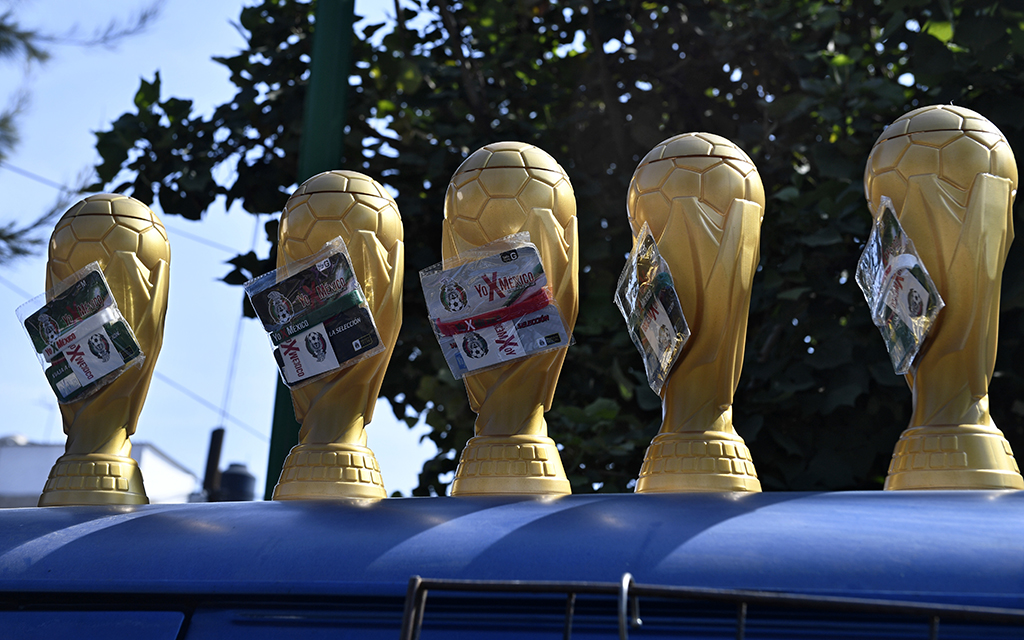PARIS: The approaching men's World Cup will be the first to feature female referees, with three women set to make history in Qatar while hoping that the focus remains on their job rather than their gender. France's Stephanie Frappart, Rwanda's Salima Mukansanga and Japan's Yoshimi Yamashita were included in the list of 36 referees selected by FIFA, while three more women will head to Qatar as assistant referees.
The trio of referees, as well as assistants Neuza Back of Brazil, Mexico's Karen Diaz Medina and Kathryn Nesbitt of the United States, will go to Qatar having already established themselves as officials in the men's game. On announcing the appointments, Pierluigi Collina, the head of FIFA's Referees Committee, insisted that "we clearly emphasize that it is quality that counts for us and not gender". For the 38-year-old Frappart, being selected for the World Cup seemed like a logical next step after a rapid rise to refereeing at the top level in Europe.
She was the first woman to referee in France's Ligue 1 in 2019, the same year she took charge of the women's World Cup final in her home country. Frappart also refereed the 2019 UEFA Super Cup final between Liverpool and Chelsea, before officiating in the Champions League in 2020 and then the French Cup final last season. All that experience means Qatar will not faze her. "I am really moved because I didn't necessarily expect this. It doesn't get bigger than the World Cup," Frappart said.
Yamashita, who is two years younger than Frappart, has had a similar rise to the top of the men's game in Japan and became the first woman to referee an Asian Champions League match in 2019. She turned professional earlier this year, giving up her work as a fitness coach which she had previously continued on a part-time basis. Yamashita told AFP that refereeing at the World Cup "is a big responsibility but I am happy to have it", adding that she "never imagined" being handed such an opportunity.
 Stephanie Frappart
Stephanie Frappart'Strong message'
Indeed she only became a referee after being persuaded by a university friend, who she said "half dragged me" to take charge of a game for the first time. Meanwhile Mukansanga, 34, was called up for the World Cup having become the first woman to take charge of a match at the men's Africa Cup of Nations in January this year.
The Rwandan once dreamt of becoming a professional basketball player but was already refereeing in the women's domestic league in her home country by the age of 20. Nevertheless, none of these six pioneers want their gender to be a talking point, and nor do they seek the limelight. "I am going to do everything I can to make sure that what is emphasized is the beauty of the football. I am not interested in power or control," Yamashita said in a recent interview with FIFA.com.
Meanwhile Frappart, who is appreciated in France for her diplomatic style as well as her firmness, insisted: "It is no longer about what gender you are. It is about your ability." Despite that, the fact these women are breaking new ground in the men's game at a World Cup taking place in Qatar-a country often criticised for its record on women's rights-is hardly insignificant. "FIFA and the governing bodies are putting out a strong message by having women referees in these countries," added Frappart, who hopes to be a role model for the next generation of female officials. "I am not a feminist spokesperson but maybe this can help move things forward."
Glitzy World Cup
The bill being paid by Qatar for the most expensive World Cup ever held is set to rise to fantasy levels in the one month left to the November 20 kickoff. Gleaming new stadiums that cost more than $6.5 billion are ready, a driver-less metro system with a price tag of $36 billion serves five of the eight venues.
The palm tree-styled street lamps and neon office blocks that line the highway from the expanded international airport to central Doha will be an instant sign to the million-plus incoming fans that the first World Cup in an Arab nation is going to be a glitzy affair. But with Qatar's organizers desperate to convince the world of the event's lasting legacy - clouded by investigation and criticisms.
Qatar, with a population of just 2.8 million, is one of the world's wealthiest countries. And comparisons are unfair, according to Danyel Reiche, a visiting associate professor at Georgetown University Qatar who is leading a research project on the World Cup. "So much of the infrastructure spending was already part of Qatar's 2030 development plan and has just been brought forward for the World Cup," he said.
FIFA has lauded Qatar's preparations and the eight stadiums designed to highlight Arabic tradition and culture. "Together we will deliver the best World Cup ever, on and off the field," its president Gianni Infantino reaffirmed this week. Sitting in a cafe in the Souq Waqif tourist district, Yasmian Ghanem, a member of Qatar's golf team, said "supporters are going to have a lot of fun" in the state. Qatar's football fans are meanwhile nervously watching the national team's form. After so much spending many are desperate to see the host nation at least get past the group stage.
But the Asian champions are the lowest ranked side in their group - 50th in the world - against Netherlands, Senegal and Ecuador. The gala opening match against Ecuador (44th) is seen as an early must-win game as Qataris dream of repeating South Korea's feat of reaching the semi-finals when they co-hosted the tournament in 2002. Former Qatar coach Philippe Troussier said the team has only a "50-50" chance. - AFP











